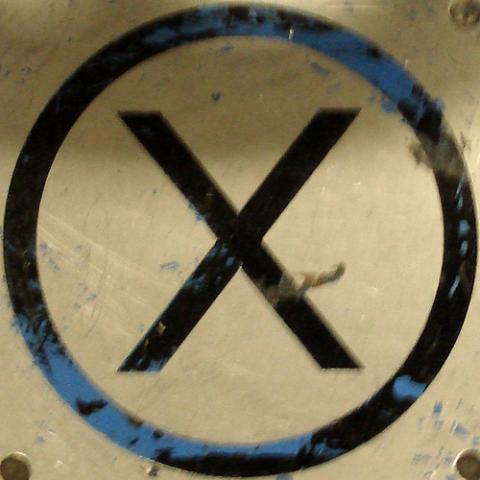Why I became a pro-choice activist

I first became involved in pro choice campaigning in early 2007 when I became involved in building a direct action pro-choice campaign group “Choice Ireland”. Although the Dublin Abortion Information Campaign and the Women’s Information Network had secured the rights of women to access abortion information there was no regulation of who could provide crisis pregnancy counselling. As a result, organisations purporting to offer abortion information were manipulating and lying to women to prevent them terminating pregnancies.
As part of the group I went undercover into one such agency. While I was there I was told by a woman, purporting to be a psychologist, that were I to terminate my pregnancy I was running a significant risk of dying, infertility or abusing any further children I was lucky enough to have. She also told me that I would lose my career and my partner due to the debilitating physical effects of abortion. When I left I was shaken to my very core and found myself wondering what it would have been like to go through that if I actually was experiencing a crisis pregnancy.
We remained focused on the campaign to regulate the standard of crisis pregnancy counselling until something happened in May 2007 that changed everything. Reminiscent of the X case, pro-choice activists were gathered in Seomra Spraoi having a discussion about abortion in Ireland when news broke that a 16-year-old girl in the care of the State was being barred from leaving the country to terminate her pregnancy. Although she had very much wanted to become pregnant and was excited about becoming a parent, once she was told that the foetus would not survive after birth she felt that the trauma of carrying the pregnancy to term was too much. Pro-choice campaign groups mounted a demonstration of solidarity with the girl - known only as D - outside the high court. Youth Defence soon joined us outside the courts holding placards reading ‘Abortion means death to the disabled’ and carrying glossy images of babies and pregnant women. Although the case took place at the height of a general election no politician seemed wiling to address the issue except Fine Gael leader Enda Kenny who promised the electorate he would not legislate for the X case despite two referenda and a Supreme Court ruling. The girl was eventually allowed to travel to the UK to terminate but once again the issue had been dodged.
It was during this time I began to see the ugly side of the pro-life campaign. I was jeered at and shouted at as I sat in a café near the Four Courts during the Miss D case. Letters threatening me with violence and containing graphic images of aborted fetuses were posted to my home. When I took part in radio debates I quickly found myself the subject of aggressive mass texting campaigns, with studio text systems being flooded by hundreds of the same text condemning me. Political parties and politicians who address this issue frequently find themselves the subject of a deluge of threatening emails and attempts to intimidate them. Intimidating pro-choice campaigners, disrupting meetings and personal attacks are often the tactic of choice from anti-choice campaigns, maintaining the culture of stigma and silence that has always surrounded the abortion debate in this country.
The other aspect of campaigning, which has struck me over the past number of years, is the imbalance in funding and resources. As a pro-choice campaign we are funded through small personal donations, and many of us use our own money to photocopy leaflets and volunteer our time. We are met however by highly funded campaigns with the resources to commission anti-abortion cinema ads, newspaper ads, and glossy leaflets. Protests are well attended by marchers transported on free coaches from all over the country.
Things are changing, however. The A,B and C judgment issuing from the European Court of Human rights in 2010 means that the government is under significant pressure to address the discrepancy between our legislation and our Constitution arising from their failure to legislate for the X case. And as we reach the twentieth anniversary of the X case there is an unprecedented level of public and political support for at least limited abortion in Ireland. Last week over 50 academics, NGOs and legislators signed a joint statement urging the government to legislate for the X case. Socialist TD Clare Daly yesterday tabled X case legislation in the Dáil.
So what can you do? Now is a critical time for pro-choice activism in Ireland. The government is under pressure from the European Court of Human Rights to legislate for the X case. Opinion polls are starting to show that Irish people’s position on abortion is much more nuanced than anti-choice campaigners would have us believe. The majority of our citizens believe that abortion should be legalised, at the very least, in the cases of rape, threat to life and fatal fetal abnormality, though many believe that it is a woman’s choice. In spite of this clear shift, however, the anti-choice campaigners are very skilled at making their voices heard and are quick to lobby their local TDs to let them know that supporting any type of relaxation of our abortion laws is simply not acceptable. Those in favour of legislation, however, are often silent.
Although legislation for the X case is a huge step forward it will only affect a very small number of women. Conservative estimates suggest that up to 12 Irish women a day travel to the UK to access abortion services and now, more than ever, they are having difficulty securing the €1000 or more necessary to make this trip. You can support them by fundraising or donating to Abortion Support. Although there is progress in sight, now, more than ever, it is time to act. {jathumbnailoff}
Image top: mag3737.
